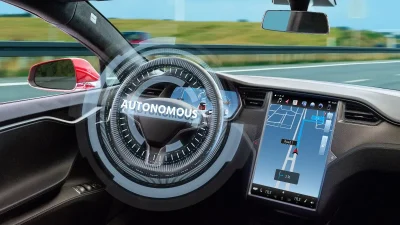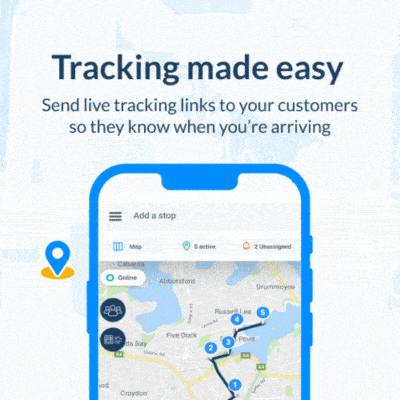The UK’s autonomous future is shifting into high gear. Connected and Automated Mobility (CAM) technology promises to boost the industry by £66 billion (US$80.8 billion) by 2040.
According to the Society of Motor Manufacturers and Traders (SMMT), this tech also comes with societal benefits beyond the financial boost, such as improving health and creating job opportunities.
UK’s autonomous advancements
The SMMT says CAM tech is expected to save around 4,000 lives by preventing 60,000 serious accidents, while also creating more than 340,000 jobs. The automotive manufacturing industry alone could see a job boost of 12,250 by 2040.
This, in turn, translates to lower insurance premiums, less stressful commutes, and accessibility to those with restricted mobility. Thus, CAM tech gives commuters what they need while offering fleets and businesses the chance to streamline deliveries and industrial processes.
SMMT chief executive Mike Hawes says, “While fully automated road journeys are still some way off, advances in connected and automated mobility technology means they’re within our future – presenting a significant opportunity to revolutionize transport in the UK.”
He says it’s imperative for governments to work with stakeholders “to implement the necessary framework needed [for delivering this] revolution swiftly and effectively, ensuring that consumers can reap the lifesaving and cost-saving benefits.”
Lower insurance premiums
The Centre for Data Ethics and Innovation (CDEI) explored the implications of AI and autonomous vehicles (AVs) on insurance. They found that AVs could potentially shift the liability from drivers to manufacturers and tech companies.
The report sets out a roadmap for building a “world-leading AI assurance ecosystem” that would lead to lower insurance premiums for individuals. Researchers found that “a mature AI assurance ecosystem has the potential to be a multi-billion pound industry in its own right.”
This initiative, it says, is pivotal for widespread AI adoption. Going beyond the financial benefits, it will also solidify the UK’s ambition for global AI governance leadership.
Connected efficiency
Positioning CAM tech as a cornerstone of UK transport will work towards avoiding economic slowdown or growth stagnation; all the while ushering an interconnected leap toward a more autonomous future.
Vehicles will be able to communicate – not just with each other but with the connected infrastructure around them. This integration is essential for the tech to thrive in passenger cars and beyond.
ALSO READ: Uber steers towards autonomous rides with Waymo
A study titled Connected Places Catapult, Element Energy, and Cambridge Econometrics, shows how 40% of new car sales could have self-driving capabilities by 2040, which would contribute to a total market value of approximately £41.7 billion (US$51.1 billion).
The (autonomous) road ahead
What does all of this mean for on-road logistics? According to the SMMT, the logistics industry has the largest market opportunity, with projections of £15.2 billion (US$18.63 billion) in revenue within the next 20 years.
Commercial heavy goods vehicles (HGVs) and delivery vans could see the earliest and most significant impacts.
The CAM tech advancements also hold promise in passenger services and off-road logistics. It will, in the long run, revolutionize buses, taxis, and vehicles in warehouses and ports alike.
Share this article
About the author
Cheryl has contributed to various international publications, with a fervor for data and technology. She explores the intersection of emerging tech trends with logistics, focusing on how digital innovations are reshaping industries on a global scale. When she's not dissecting the latest developments in AI-driven innovation and digital solutions, Cheryl can be found gaming, kickboxing, or navigating the novel niches of consumer gadgetry.














